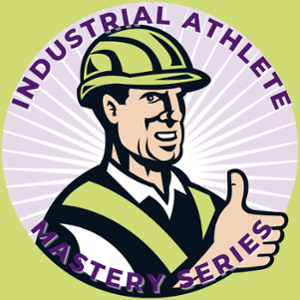
“I don’t have an office. I live out of my car.
There may be a few telephonic case managers who sit behind a desk, drinking coffee and doing everything on the phone. Not me, I am in the field; drinking coffee, going to doctor’s visits, observing therapy, meeting with patients, talking to physicians, dealing with vendors, visiting employers, coordinating with adjusters; I am in the middle of it all, like the center of the wheel.”
As a therapist, why would you care what a work comp case manager does all day?
It’s simple, you need to understand the role of a case manager to build a relationship with them. And building relationships with case managers will help promote the importance of your services, provide referrals for future patients, and ensure your patients get the care they deserve.
 A case manager serves as a patient's advocate, working to improve their overall health by coordinating care from different medical providers. A case manager works directly with patients, their family and caregivers to coordinate care. The case manager often serves as the liaison between a patient, the healthcare team and other community services. Imagine the case manager is the center of the wheel and oftentimes, is the only person who has contact with all of a person’s healthcare providers, insurance companies and community resources such as rehabilitation or senior housing facilities. The case manager keeps the wheel spinning and the patient’s progress moving forward.
A case manager serves as a patient's advocate, working to improve their overall health by coordinating care from different medical providers. A case manager works directly with patients, their family and caregivers to coordinate care. The case manager often serves as the liaison between a patient, the healthcare team and other community services. Imagine the case manager is the center of the wheel and oftentimes, is the only person who has contact with all of a person’s healthcare providers, insurance companies and community resources such as rehabilitation or senior housing facilities. The case manager keeps the wheel spinning and the patient’s progress moving forward.
ErgoScience interviewed a top field case manager to find out the best way to build that relationship with him.
He shared that his number one goal is to get the injured worker healthy and back to work, but he must balance this with the adjuster’s agenda to get it done quickly. Being the center of a wheel, the case manager communicates with all parties in the industrial athlete’s road to recovery. The more effectively you communicate with the case manager, the easier it is for him to help the industrial athlete.
Let’s look at three communication best practices case managers prefer when working with physical therapists.
Therapist best practices
Send weekly progress notes to the case manager. Since the case manager has to keep all parties informed, he needs information passed to him regularly. This is different from commercial insurance patients that may only need therapy notes sent to the physician at the end of rehab. The case manager must share patient progress with multiple parties such as the physician and adjuster. If the case manager has to constantly bug the therapist for notes it slows his process and creates extra work chasing down the notes.
Provide appropriate level of detail in progress notes. The work comp players are constantly evaluating the care of the patient to be sure his case stays on track to get back to health and back to work. Sending scant progress notes does not help the patient or the process. Generic notes such as,

“Patient is progressing” do not provide enough details to evaluate where the patient is in the process and if other treatments may be needed. Instead, summarize what is going on with patient: do they seem to having trouble aducting with arm, or can the patient actively lift arm overhead or behind back, or patient can lift XX amount of weight. Case managers try to avoid sending their patient to clinics that provide generic notes.
Communicate using the most effective method. As mentioned before, a field case manager is often out at appointments with patients or driving to meet someone, therefore may not be able to talk on the phone at that moment. Sending an email or text is often the preferred communication method, but there are exceptions. If you identify something out of the ordinary with your patient, it is best to pick up the phone and call. For example, if the patient is not giving effort or you must keep redirecting the patient to do a task, you may not want to put that in a report but instead communicate this with a brief call. Or if you think the patient will need additional visits, call and explain this a couple of weeks before the patient finishes the prescribed treatment. It is best not to wait until the patient goes back to the doctor to determine this. Better to get the wheels in motion ahead of time. Don’t be afraid to dial up the case manager for a brief conversation or leave a message.
Best practices reap rewards
Sending progress notes regularly and including the appropriate level of information will keep the case manager happy. When given a choice of clinics, the case manager will choose the clinic or therapist who makes life easier. This will boost referrals.
Regular communication with the case manager will ensure your patients get the best care to get back to work.
Building a relationship with the case manager will make the process of treating injured workers easier, thus saving you time and hassle.
The ErgoScience Industrial Athlete Mastery series can help you learn more about building relationships and marketing your work comp services.

ErgoScience makes the workplace better by applying evidence-based injury prevention through proven, defensible methodologies.


Proudly built by Adam Black Media Copyright © All rights reserved.
Our goal is to help people in the best way possible. this is a basic principle in every case and cause for success. contact us today for a free consultation.